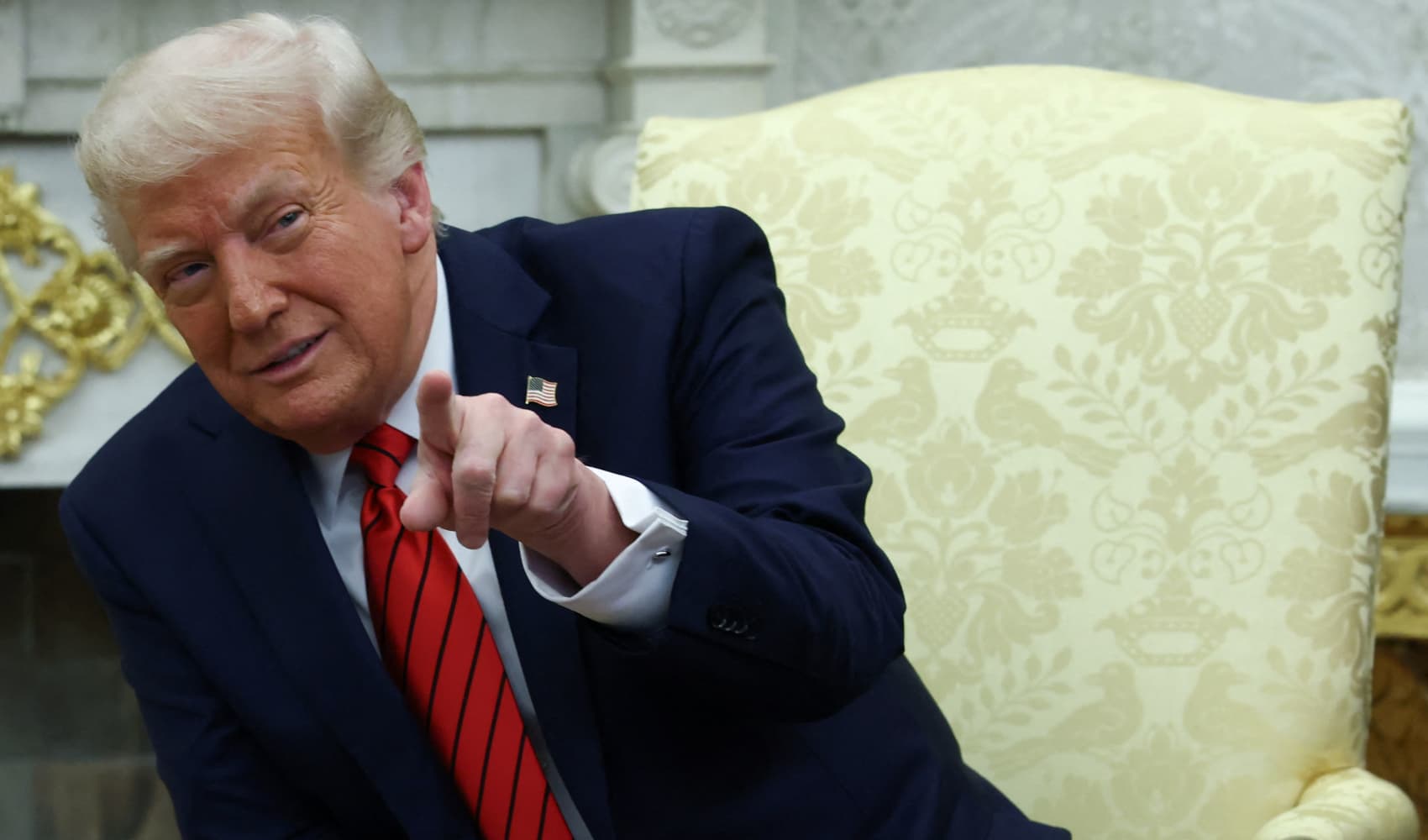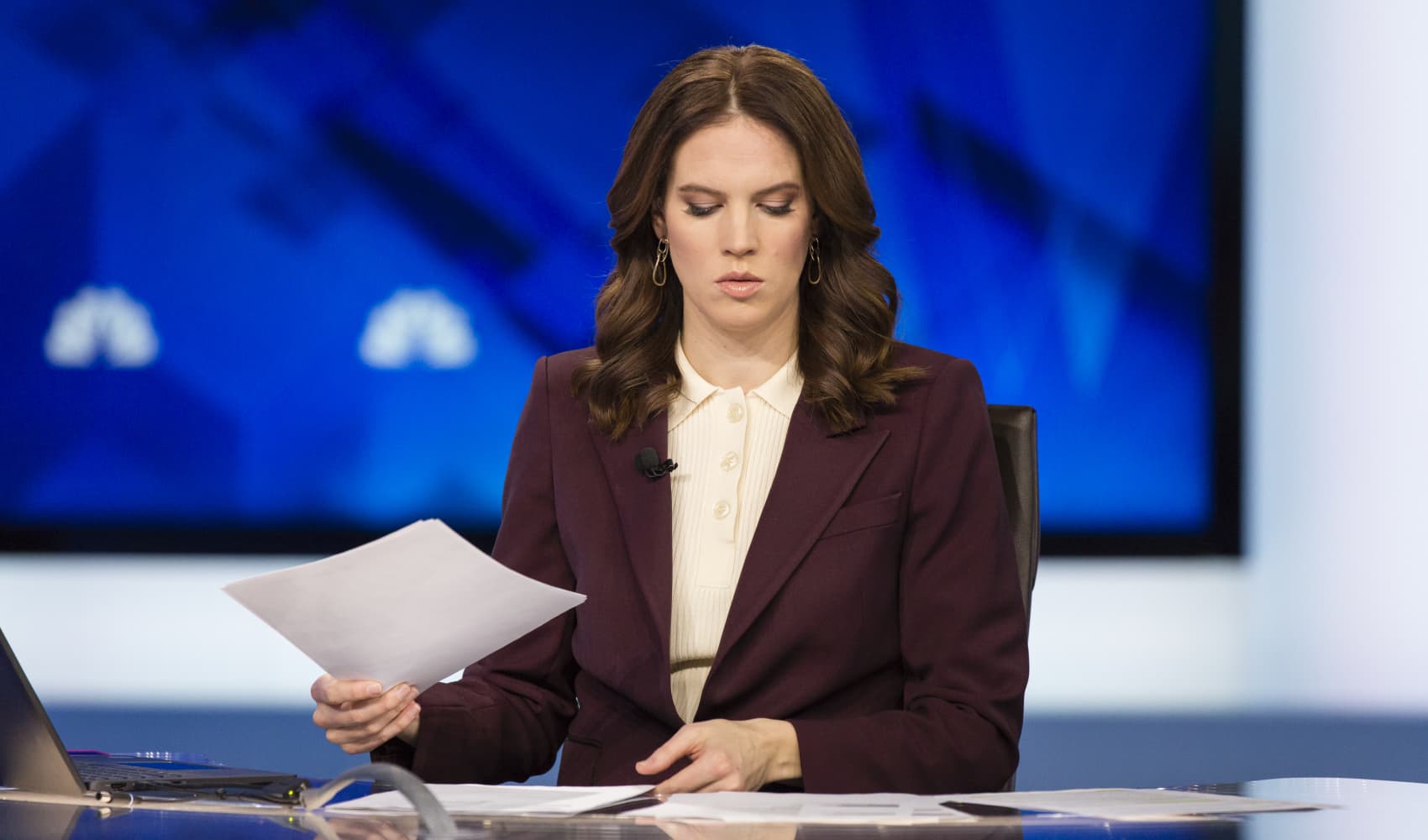Trump vs. Powell: Investors Flee U.S. Assets in Panic!
CNBC Daily Open: Investors Flee U.S. Assets as Trump's Powell Attacks Escalate
Introduction: A Perfect Storm Brewing?
The financial markets are a bit like the weather – volatile, unpredictable, and sometimes downright scary. Lately, it feels like a perfect storm is brewing. Investors are growing increasingly uneasy about U.S. assets, and one of the contributing factors is the resurgence of former President Donald Trump's attacks on Federal Reserve Chair Jerome Powell.
Trump's Renewed Assault on Powell: Rattling the Markets
The Unseen Hand of Politics in Monetary Policy
As if ripped from yesterday's headlines, U.S. President Donald Trump has once again launched a series of attacks against Federal Reserve Chair Jerome Powell. This isn't new territory. Trump has been critical of Powell's monetary policy decisions in the past, but the renewed intensity is causing jitters in the market. Is this just political theater, or does it signal a more significant shift in the administration's stance towards the Fed? This begs the question, what power should political leaders have over seemingly independent economic bodies?
Why Powell? What's the Beef?
Trump's critiques primarily revolve around the Fed's interest rate policies. He argues that higher interest rates stifle economic growth, a narrative he often emphasizes. Powell, on the other hand, has maintained the Fed's independence, emphasizing the importance of data-driven decisions to maintain price stability and full employment. It's a classic clash between political expediency and economic prudence. Some analysts believe Trump wants lower rates to boost the economy before an election, regardless of potential long-term consequences.
Market Reaction: A Flight to Safety?
Stocks and the Dollar Take a Hit
The markets reacted swiftly to the news of Trump's renewed attacks. American stocks took a dive, and the U.S. dollar weakened against other major currencies. This suggests that investors are losing confidence in the stability of the U.S. economy and are seeking safer havens for their investments.
Gold's Glittering Appeal
In times of uncertainty, gold often becomes the go-to asset for investors. True to form, gold prices surged to a fresh high as investors sought refuge from the market turmoil. Gold's historical role as a store of value makes it a natural hedge against economic and political instability. Think of it as the financial equivalent of stocking up on canned goods before a hurricane.
Tesla's Earnings Loom: A Make-or-Break Moment?
Beyond Politics: Company-Specific Concerns
While political anxieties weigh heavily on the market, individual companies also face their own unique challenges. Shares of Tesla experienced a significant drop a day before the company's highly anticipated first-quarter earnings announcement. Tesla's performance is closely watched as a barometer of the electric vehicle market and the overall health of the technology sector.
Can Tesla Deliver? The Pressure is On.
Analysts are keen to see if Tesla can maintain its growth trajectory amid increasing competition and concerns about demand. A positive earnings report could provide a much-needed boost to investor confidence, while a disappointing one could further exacerbate market anxieties. The outcome will affect more than just Elon Musk’s bank account.
Global Deals and Diplomatic Maneuvering
India and the U.S.: A Budding Partnership?
Amidst the domestic turmoil, there were also signs of progress on the international stage. India's Prime Minister Narendra Modi met with U.S. Vice President JD Vance in New Delhi, where both leaders hailed progress on a potential trade deal. This could signal a strengthening of economic ties between the two countries and offer some counterbalance to the negative sentiment surrounding other geopolitical issues.
A Win-Win Situation?
A successful trade agreement between India and the U.S. could create new opportunities for businesses in both countries, boosting economic growth and creating jobs. It would also provide a welcome dose of optimism in an otherwise uncertain global landscape. Does this show the strength of the US economy even under such political strife?
Nomura's Acquisition: A Strategic Move?
Banking on Growth
Japanese investment bank Nomura announced its plans to acquire the U.S. and European public asset management businesses of Macquarie. This move suggests that Nomura is bullish on the long-term prospects of the asset management industry and is looking to expand its global footprint. It's a sign that some players are still seeing opportunities for growth, even in the face of market volatility.
Macquarie's Exit: A Sign of the Times?
On the other hand, Macquarie's decision to sell its asset management businesses raises questions about its strategic priorities. Perhaps the company is looking to focus on other areas of its business, or maybe it's simply seeking to streamline its operations. Whatever the reason, it's a reminder that the financial landscape is constantly evolving.
The "Severe Reaction" Scenario: Is Impeachment Possible?
Evercore ISI's Warning: Brace for Impact
Investment research firm Evercore ISI issued a stark warning: Markets would likely have a "severe reaction" if Trump were to move to remove Powell from his position. This underscores the fragility of investor confidence and the potential for political interference to trigger a significant market downturn.
The Risks of Political Meddling
The independence of the Federal Reserve is considered crucial for maintaining economic stability. Any perceived attempt by the government to exert undue influence over the Fed could undermine investor confidence and lead to a sharp sell-off in financial markets. The market would likely react as if the Fed's integrity were being challenged. Should the President or other political figures really have the ability to impeach the Chair?
Navigating the Turbulence: Investor Strategies
Hedging Your Bets
In times of market uncertainty, it's important to diversify your portfolio and consider hedging your bets. This means investing in a variety of assets, including stocks, bonds, and commodities, to reduce your overall risk. You might also consider using options or other derivatives to protect your portfolio from potential losses.
Staying Informed
Keeping a close eye on market developments and economic indicators is crucial for making informed investment decisions. Pay attention to news reports, analyst commentary, and company earnings announcements to stay ahead of the curve. Information is power, especially in volatile markets.
Remembering Good Friday's Respite
A Momentary Pause
Yesterday's edition of this newsletter cautioned that U.S. President Donald Trump’s desire to intervene in the Federal Reserve could result in upheaval in the markets. Thankfully, that did not immediately happen because markets were closed for Good Friday. It was a brief respite, a moment to catch our breath before the next wave of volatility potentially crashes ashore.
Conclusion: Charting a Course Through Uncharted Waters
The current market environment is characterized by a confluence of factors, including political uncertainty, economic anxieties, and company-specific challenges. Trump's attacks on Powell are adding fuel to the fire, causing investors to reassess their positions and seek safer havens. While there are also signs of progress on the global stage, such as the potential trade deal between India and the U.S., the overall mood remains cautious. As investors, we must stay vigilant, informed, and adaptable to navigate these turbulent waters.
Frequently Asked Questions
- What is the Federal Reserve, and why is its independence important? The Federal Reserve (the Fed) is the central bank of the United States. Its independence is crucial because it allows the Fed to make monetary policy decisions based on economic data, not political pressure.
- Why is Donald Trump criticizing Jerome Powell? Trump has historically argued that Powell's interest rate policies are too restrictive and are hindering economic growth. He believes lower rates would boost the economy, even if it risks inflation.
- How does Trump's rhetoric affect the stock market? Trump's attacks on Powell create uncertainty and erode investor confidence, leading to market volatility and potentially lower stock prices.
- What are some safe haven assets investors turn to during market downturns? Common safe-haven assets include gold, U.S. Treasury bonds, and the Swiss franc. These assets tend to hold their value or even increase in value during times of economic uncertainty.
- How can I protect my investments during periods of market volatility? Diversifying your portfolio, hedging your bets, and staying informed are key strategies for managing risk during market volatility. Consider consulting with a financial advisor for personalized guidance.

